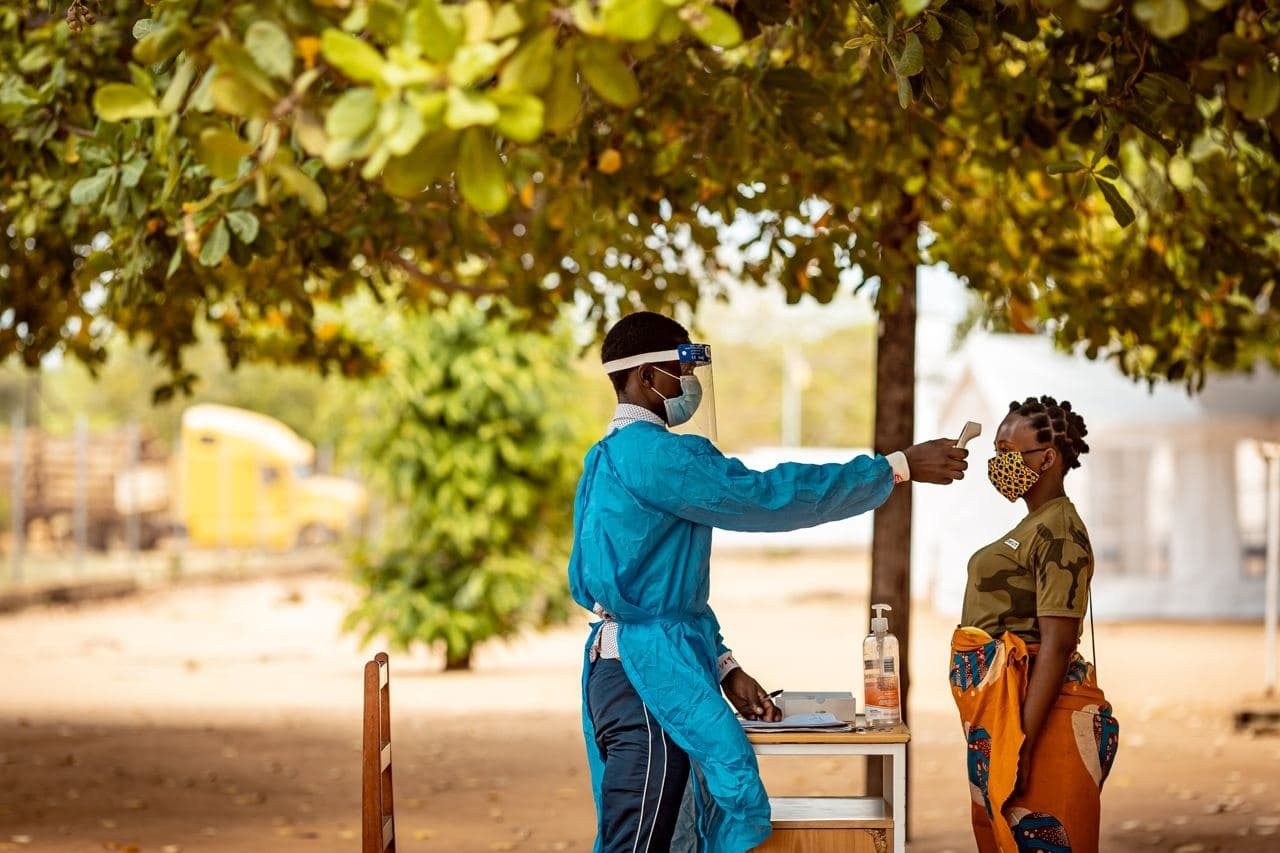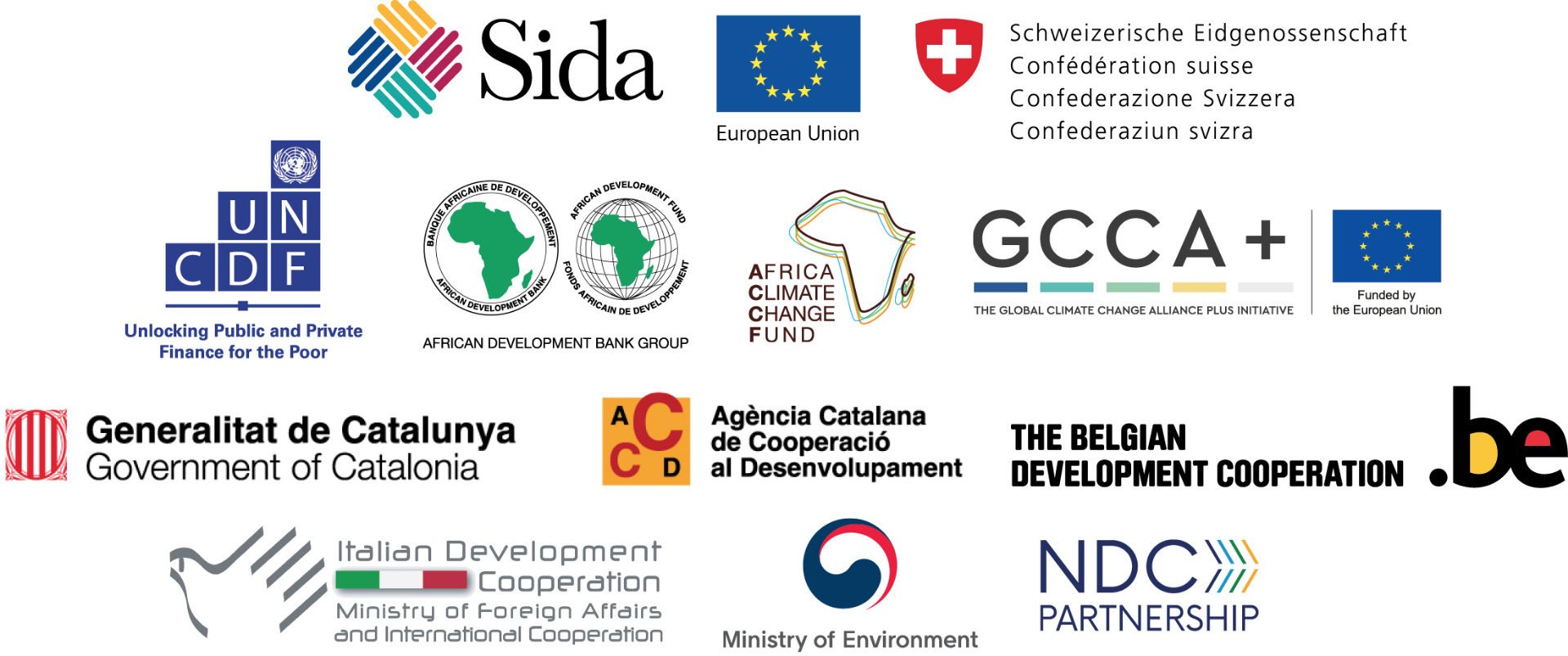
Using the LoCAL approach for locally led action to tackle the COVID-19 pandemic in Mozambique
Through consultations, communities in Mozambique are having their say in determining how resources are spent and what projects are prioritised. It’s an approach fostered through the Local Climate Adaptive Living Facility, which channels finance to local governments for locally led adaptation to climate change – but which has also proved adaptable to meeting community needs amidst the COVID-19 pandemic.
It is through the Local Advisory Councils that Rahele Johane and the rest of the community can come together to share their needs and priorities directly with local governments. The Consultative Councils are an essential part of the development of local plans prepared each year by the Government of Mozambique through a participatory and inclusive decision-making process.
Water and soap are a priority,” said Rahele Johane, member of the Local Advisory Board in Benzeno Locality, Mabote District, Inhambane Province. “Now I feel more protected from COVID-19 because I have water.
Through the LoCAL Facility, which is funded by the Government of Sweden and technically supported by the United Nations Capital Development Fund (UNCDF), the Government of Mozambique listens to the voices and needs of local communities. Operating through local governments, essential public services are provided, as well as actions to promote adaptation to climate change and, most recently, vital efforts to fight the COVID-19 pandemic.
 Rahele Johane, member of the Local Advisory Board in Benzeno Locality, Mabote District, Inhambane Province, Mozambique ©UNCDF-LoCAL Photo: Helvisney_dos_Reis_Cardoso 2021
Rahele Johane, member of the Local Advisory Board in Benzeno Locality, Mabote District, Inhambane Province, Mozambique ©UNCDF-LoCAL Photo: Helvisney_dos_Reis_Cardoso 2021
In consultations, we talk about what is lacking in our community and also about what is good. If there is no consensus, our concerns go from the administrative post to the district level and so on”, said Rahele Johane, adding “The Community Council determined which actions would be a priority within the scope of LoCAL in the region.”
“It's good when we meet because our requests are heard and once forwarded to the local authorities, they are resolved, as you can see,” says Johane proudly in front of one of the village's many new running water sources.
Amidst the uncertainties arising from the global health crisis, the allocation of resources to districts follows a participatory approach involving and seeking to meet the needs of local communities.
This participatory process includes women and men representing their communities in the districts and aims to improve the accountability of local governments in matters related to governance and socioeconomic development.

Ms. Ludmila Maguni, Secretary of State for Inhambane Province, Mozambique
©UNCDF-LoCAL Photo: Helvisney_dos_Reis_Cardoso 2021
The most important thing in this process is to listen to the communities: What are their concerns?”, explained the Secretary of State for Inhambane Province, Ms. Ludmila Maguni.
Mozambique is among the countries most subject to natural disasters in the world and the COVID-19 crisis has aggravated the already visible impact of climate change in the country. The crisis also puts at risk the livelihoods of rural populations already compromised by the emergence of food and nutritional insecurity due to extreme weather conditions.
The process of selecting and prioritizing climate-adapted investment projects at the district level is carried out by local governments, also in consultation with communities through the Local Advisory Councils. The projects chosen reflect the priorities expressed by governments and local communities.
Water supply systems were one of the priority interventions selected by the Local Advisory Council of the District of Mabote, a district located in a semi-arid region, which is implementing LoCAL and where water scarcity is a complex challenge.
From new health clinics in rural areas to the acquisition of personal protective equipment to isolation tents, irrigation systems and agricultural inputs such as seeds and tools, 1 million Mozambicans in the 13 most vulnerable districts in Gaza and Inhambane provinces, benefited from the construction of climate-resilient infrastructure and from improved local preparedness and response to the pandemic itself.
“Local governments are in a unique and privileged position to lead the planning and budgeting processes; At the same time, local governments promote and increase the articulation of emergency interventions to combat COVID-19 without losing the perspective of long-term social and economic development planning”, says Ramon Cervera, Programme Officer for UNCDF in Mozambique.
Over six years of implementation in Mozambique from 2015 to 2021, LoCAL's budget framework has channelled US$20 million in funding for climate change adaptation in the country, through local governments, of which US$12 million was allocated to Performance-Based Climate Resilience Grants for financing climate adaptation projects identified by local communities.
Photos above - LoCAL enabled the rehabilitation and building of schools and water systems in Mozambique. © LoCAL-UNCDF Photos: Helvisney dos Reis Cardoso, 2021
LoCAL was expanded from the initial four districts in Gaza Province in 2015 to 20 districts in Gaza, Inhambane, Niassa, Nampula and Zambézia Provinces in 2021.
LoCAL in Mozambique has financed the construction or rehabilitation of 66 resilient infrastructures, including health clinics, maternity hospitals, schools, irrigation systems, flood prevention systems, water systems, cisterns, silos, local markets, bridges, electricity systems and more.
This was only possible thanks to the contributions and valuable partnerships of the Government of Mozambique with the Governments of Belgium, Sweden, Switzerland and Catalonia and also the European Union, through the technical assistance of UNCDF.
Featured Video:
LoCAL in Mozambique
Local governments are leading the COVID-19 responses around the world, including in Mozambique. With financial support of the Government of Sweden and technical assistance of the United Nations Capital Development Fund (UNCDF), the Government of Mozambique has taken action to strengthen and protect the sustainability of rural families’ livelihoods, which were already under the threat of climate change and now face the COVID-19 pandemic.
For more information about the work of LoCAL in Mozambique:
For more information about LoCAL, read our online brochure or download the brochure.
Connect with us
Join the LoCAL Network
Visit our site sections
Subscribe to our newsletter
Enter your email below to receive the latest LoCAL updates in your mailbox
Thanks to our partners:
Stay Connected
GET THE LATEST UPDATES TO YOUR INBOX
